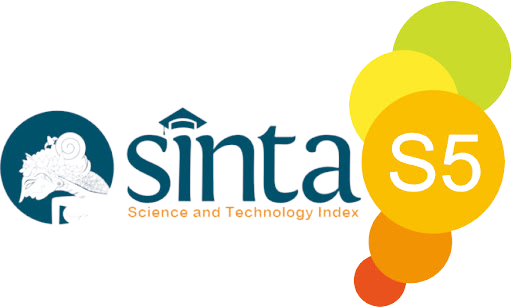Bibliometric Analysis of Sustainable Tourism Research in Bali (2020-2025)
DOI:
https://doi.org/10.32528/sw.v8i1.3065Keywords:
Bibliometric analysis, sustainable tourism, BaliAbstract
This study aimed to extend the previous research conducted by Yospetch and Nimsai, as well as Kawuryan, concerning the global prominence of sustainable tourism research in Asia and Indonesia. The novelty of this study lay in its specific focus on sustainable tourism in Bali, a region with a longstanding history in tourism management. A relational bibliometric analysis was employed to provide a comprehensive overview of the relationships between metadata and analytical units, using tools such as PoP, Mendeley Desktop, and VOSviewer. From an analysis of 16 Scopus-indexed academic publications, three key findings were identified. First, a new research theme emerged between 2020 and 2025, namely the evaluation of government policy frameworks in relation to sustainable tourism. Second, the limited global visibility of research on sustainable tourism in Bali was attributed to the lack of international collaboration and the restricted diversity of keywords employed. Third, a discernible shift was observed in the dominant research themes between the periods 2010-2019 and 2020-2025. This thematic transition indicated potential avenues for future scholarly inquiry that could offer greater significance and impact within the international academic community.
References
Arshiniwati, N. M. (2025). Reviving the Sanghyang Grodog Ritual Dance: Promoting Social Harmony and Sustainable Cultural Tourism in Nusa Lembongan Island, Bali. Jurnal Kajian Bali, 15(1), 61–91. https://doi.org/10.24843/JKB.2025.v15.i01.p03
Choe, J. (2023). Sustainable and Inclusive Spiritual Tourism Development in Bali as a Long-term Post-Pandemic Strategy. International Journal of Religious Tourism and Pilgrimage, 11(2), 100–111. https://doi.org/10.21427/BP1V-GZ27
Fagertun, A. (2017). Labour in Paradise: Gender, Class and Social Mobility in the Informal Tourism Economy of Urban Bali, Indonesia. Journal of Development Studies, 53(3), 331–345. https://doi.org/10.1080/00220388.2016.1184248
Halim, D. K. (2021). Comparative study: Perception on sustainable tourism of urban and rural eco-villages in Bali. Iop Conference Series Earth and Environmental Science, 704(1). https://doi.org/10.1088/1755-1315/704/1/012036
Kawuryan, M. W., Fathani, A. T., Purnomo, E. P., Salsabila, L., Azmi, N. A., Setiawan, D., & Fadhlurrohman, M. I. (2022). Sustainable Tourism Development in Indonesia: Bibliometric Review and Analysis. Indonesian Journal of Geography, 54(1), 154–166. https://doi.org/10.22146/ijg.64657
Majiid, M. A. (2023). Land Conversion Analysis in Buleleng District, Bali: An Outlook for Sustainable Tourism Development. E3s Web of Conferences, 468. https://doi.org/10.1051/e3sconf/202346810004
Moyle, B., Moyle, C. lee, Ruhanen, L., Weaver, D., & Hadinejad, A. (2020). Are we really progressing sustainable tourism research? A bibliometric analysis. Journal of Sustainable Tourism, 29(1), 106–122. https://doi.org/10.1080/09669582.2020.1817048
Ninkov, A., Frank, J. R., & Maggio, L. A. (2022). Bibliometrics: Methods for studying academic publishing. Perspectives on Medical Education, 11(3), 173–176. https://doi.org/10.1007/s40037-021-00695-4
Nugraha, I. G. P. (2024). The role of government and community participation in realizing sustainable tourism development in Tihingan Village, Bali, Indonesia. Journal of Infrastructure Policy and Development, 8(8). https://doi.org/10.24294/jipd.v8i8.4621
Oka, I. M. D. (2024). Digital marketing for sustainable tourism village in Bali: A mixed methods study. Journal of Infrastructure Policy and Development, 8(7). https://doi.org/10.24294/jipd.v8i7.3726
Palguna, I. D. G. (2023). Towards quality and sustainable tourism in Bali: Should the regional master plan be adjusted? Udayana Journal of Law and Culture, 7(1), 43–58. https://doi.org/10.24843/UJLC.2023.v07.i01.p03
Passas, I. (2024). Bibliometric Analysis: The Main Steps. Encyclopedia, 4(2), 1014–1025. https://doi.org/10.3390/encyclopedia4020065
Rustini, N. K. A. (2023). Designing pathways towards sustainable tourism in Soka Tourism Bali: A MULTIPOL policy analysis. Decision Science Letters, 12(4), 649–658. https://doi.org/10.5267/j.dsl.2023.9.001
Widanti, N. P. T. (2025). Edu-Tourism: Sustainable Tourism Strategy Based on Social, Economic and Environmental in the Province of Bali. Iop Conference Series Earth and Environmental Science, 1475(1). https://doi.org/10.1088/1755-1315/1475/1/012021
Widiastini, N. M. A. (2025). Strategic Collaborations and DiversificationPathways to Sustainable Growth in Bali’s Tourism Village and Business Ecosystems. Jurnal Kajian Bali, 15(1), 146–172. https://doi.org/10.24843/JKB.2025.v15.i01.p06
Yoopetch, C., & Nimsai, S. (2019). Science mapping the knowledge base on sustainable tourism development, 1990-2018. In Sustainability (Switzerland) (Vol. 11, Issue 13). MDPI. https://doi.org/10.3390/su11133631
Additional Files
Published
How to Cite
Issue
Section
Categories
License
Copyright (c) 2025 Sadar Wisata: Jurnal Pariwisata

This work is licensed under a Creative Commons Attribution-NonCommercial 4.0 International License.











